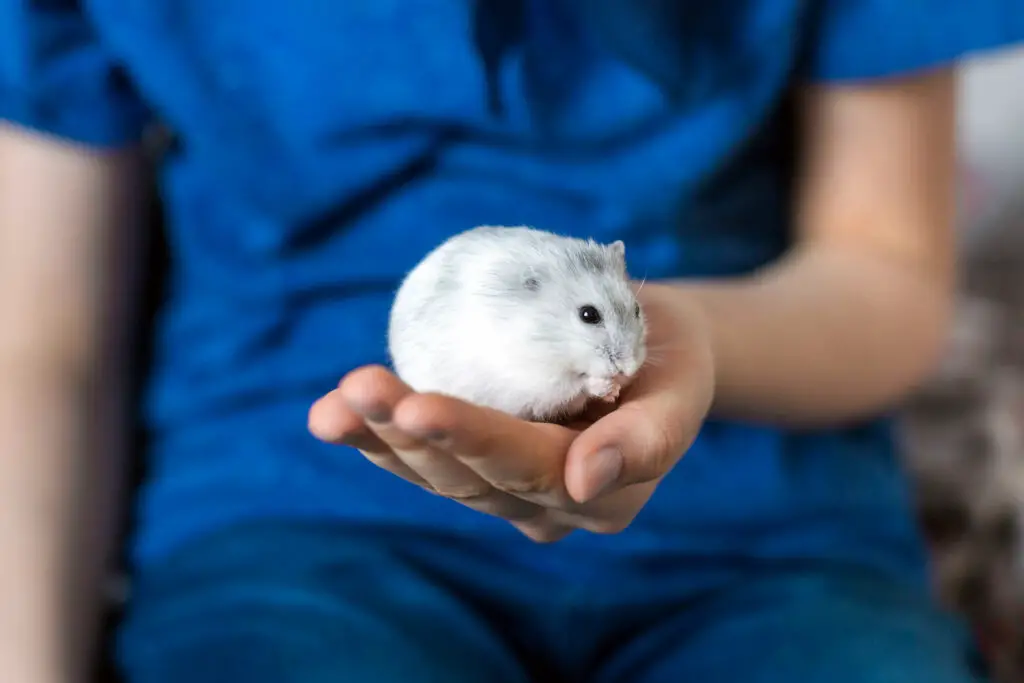Hamsters are undoubtedly some of the most popular pets in the world. They are small, cute, and cuddly, and can easily become beloved members of the family. However, there is one unfortunate reality about these little creatures: they have a very high mortality rate.
As a veterinarian, I have seen countless cases of hamster deaths, and it’s always heartbreaking. It’s not uncommon for owners to come to me with the question: “Why do hamsters die so easily?” In this blog post, we will explore some of the reasons behind this phenomenon.

The Short Lifespan of Hamsters
First and foremost, it’s important to understand that hamsters have a relatively short lifespan. The average lifespan of a hamster is around 2-3 years, although some can live up to 5 years. This is a stark contrast to the lifespan of larger animals like dogs and cats, who can live for upwards of 10-15 years. Even larger animals that are more similar to hamsters have a much longer lifespan of about 6 to 7 years.
Genetics
The shorter lifespan of hamsters is largely due to genetics. Hamsters have been selectively bred for their small size and docility, which has resulted in a shorter lifespan. In the wild, hamsters have a much shorter lifespan due to predation, disease, and other factors.
Health Problems
Hamsters are also prone to a variety of health problems, which can contribute to their high mortality rate. Respiratory infections, dental problems, and gastrointestinal issues are all common in hamsters. Additionally, hamsters are prone to cancer, which can be difficult to treat due to the small size of the animal.
The Importance of Proper Care
While genetics and health problems play a big role in the lifespan of hamsters, proper care can also make a big difference. As a veterinarian, I have seen countless cases of hamster deaths that could have been prevented with better care.
Diet
One of the most important aspects of hamster care is diet. Hamsters need a balanced diet that includes a variety of foods, including fresh vegetables, fruits, and high-quality pellets. Many owners make the mistake of feeding their hamsters an all-seed diet, which can lead to nutritional deficiencies.
Environment
Hamsters also need a clean and comfortable environment. A cage that is too small or dirty can lead to stress and illness. Additionally, hamsters need plenty of space to exercise and play, as well as a variety of toys and hiding places.
Handling
Proper handling is also important for hamsters. They are delicate animals that can easily become stressed or injured if handled incorrectly. It’s important to handle hamsters gently and to provide them with plenty of opportunities to exercise and play outside of their cage.
Conclusion
In conclusion, hamsters have a high mortality rate due to a variety of factors, including genetics and health problems. However, proper care can make a big difference in the lifespan of these beloved pets. By providing a balanced diet, a clean and comfortable environment, and gentle handling, owners can help their hamsters live longer, happier lives. As a veterinarian, I always encourage owners to educate themselves on proper hamster care and to seek veterinary care promptly if they notice any signs of illness or injury in their pets.
- How Long Do American Eskimo Dogs Live? Important Factors and Care Tips - September 29, 2023
- Do American Bulldogs Need Grooming? Essential Tips and Care Guidelines - September 29, 2023
- Do Bengal Cats Enjoy Playing? Essential Tips for Keeping Them Active - September 29, 2023